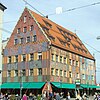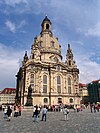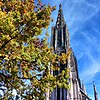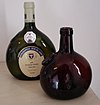Germany Travel Guide
Discover the cultural and natural attractions, outdoor adventures, local customs, and safety and health tips for Germany, a country rich in history and breathtaking landscapes. Find out where to stay, what to eat, and how to get around in Germany.
- Introduction to Germany
- List of Places to Visit in Germany
- Hiking/Biking Routes of Germany
- Best Things to Do in Germany: Activities and Tours
- Week-Long Itinerary for Germany
- Food and Drink Scene of Germany
- Where to Stay in Germany: Hotels, Hostels, and Guesthouses
- What to Buy in Germany: Souvenirs and Local Products to Bring Home
- Local Culture and Customs of Germany
- Best Time to Visit Germany
- Do’s and Don’ts of Germany
- Safety and Health
- Getting to Germany: Transportation Options and Logistics
- How to Get Around in Germany
- Where to Go Next from Germany: Nearby Destinations and Excursions
- Conclusion
Introduction to Germany
Germany, located in Central Europe, is known for its rich cultural history, diverse landscapes, and vibrant city life. Germany’s climate ranges from temperate in the north to continental in the south, and it experiences four distinct seasons.
Germany is a popular destination for travelers seeking a mix of history, food, art, and outdoor recreation. From the buzzing cities of Berlin, Munich, and Hamburg to the medieval towns of Rothenburg ob der Tauber and Nuremberg, Germany has something to offer for every type of traveler.
In this comprehensive tour guide for Germany, we will explore the must-see sights, local culture and customs, best times to visit, and essential information on transportation, safety, and health.
List of Places to Visit in Germany
Germany is a country with a rich history and diverse culture. Here is a list of some of the top places to visit in Germany:
Culturally Important Attractions: Museums and Historical Places
Germany is home to some of the world’s most important museums and historical sites. Here are some of the must-see attractions:
- Berlin Wall
- Neuschwanstein Castle
- Nuremberg Castle
- Cologne Cathedral
- Brandenburg Gate
- Reichstag building
- The Holocaust Memorial
- Berlin Museum Island
- Jewish Museum Berlin
- Deutsches Museum
Natural Attractions of Germany: Outdoor Adventures and Scenic Views
Germany has some of the most breathtaking natural landscapes in Europe. Some of the top natural attractions to visit include:
- Bavarian Alps
- Black Forest
- Rhine Valley
- Saxon Switzerland National Park
- Wadden Sea National Park
- Zugspitze
Hiking/Biking Routes of Germany
Germany is a paradise for hikers and bikers. The country is crisscrossed with numerous well-marked hiking and biking trails for all levels of fitness. Some of the best routes are:
- Romantic Road
- Berlin Wall Trail
- Rhine Cycle Route
- Moselle Cycle Route
- Eifelsteig Trail
Best Things to Do in Germany: Activities and Tours
Germany is a land of endless possibilities. Here are some of the best things to do in Germany:
- Oktoberfest in Munich
- Christmas markets
- Wine tasting in the Moselle Valley
- Castle hopping
- City tours and sightseeing
- Schnitzel and beer tasting tour
- River cruises on the Rhine and Danube
Week-Long Itinerary for Germany
If you have limited time to explore Germany, here is a sample itinerary for a week-long trip:
| Day | Destination |
|---|---|
| 1 | Berlin |
| 2 | Potsdam |
| 3 | Dresden |
| 4 | Munich |
| 5 | Neuschwanstein Castle |
| 6 | Nuremberg |
| 7 | Rothenburg ob der Tauber |
Food and Drink Scene of Germany
German cuisine is hearty, filling, and delicious. Here are some of the must-try dishes and local beverages:
Must-Try Dishes
- Schnitzel
- Sauerbraten
- Spätzle
- Currywurst
- Pretzels
- Beef Rouladen
- Black Forest Cake
Local Beverages
- Beer: Germany is known for its beer culture, and there are over 1,300 breweries in the country.
- Wine: Germany is one of the world’s top wine-producing countries, especially in the Moselle Valley.
- Schnapps: A strong alcoholic beverage made from distilled fruit juice.
Where to Stay in Germany: Hotels, Hostels, and Guesthouses
Germany offers a wide range of accommodation options, from budget-friendly hostels to luxury hotels. Some of the top places to stay in Germany include:
- Berlin: Generator Hostel, The Circus Hostel, The Ritz-Carlton
- Munich: Wombats City Hostel, Hilton Munich City, Hotel Bayerischer Hof
- Hamburg: Superbude St. Pauli, WESTIN Hamburg, Park Hyatt Hamburg
- Cologne: A&O City Hostel Cologne, Hyatt Regency Cologne, Pullman Hotel
What to Buy in Germany: Souvenirs and Local Products to Bring Home
Some of the best souvenirs and local products to bring back home from Germany include:
- Beer steins and glasses
- Traditional German clothing: Dirndl and Lederhosen
- Christmas decorations and ornaments
- German food specialties: Mustard, chocolate, marzipan
- German-made cars and appliances
- German porcelain: Meissen and Nymphenburg
Local Culture and Customs of Germany
Germany has a rich and diverse culture steeped in traditions, customs, and etiquette. Here are some tips to help you navigate the local culture:
- Germans are punctual and expect others to be punctual as well.
- Tipping in Germany is not mandatory, but it is customary to round up the bill.
- Germans appreciate politeness and formality.
- Germans are very environmentally conscious.
Best Time to Visit Germany
Germany can be visited all year round, but the best time to visit depends on your interests and preferences. The peak tourist season in Germany is from June to August, when the weather is warm and sunny. The shoulder seasons of spring (April to May) and fall (September to October) offer milder temperatures and fewer crowds. Winter (November to March) is the low season, and it can be cold and snowy, but it is an excellent time to experience Christmas markets and winter sports.
Do’s and Don’ts of Germany
Here are some do’s and don’ts to consider when visiting Germany:
Do:
- Try to learn a few words of German.
- Make sure to carry cash.
- Respect the local culture and customs.
- Follow traffic rules and be considerate of other road users.
Don’t:
- Don’t be late for appointments.
- Don’t assume that Germans are unfriendly.
- Don’t jaywalk or cross the street on a red light.
Safety and Health
Germany is a safe country, but like any other destination, there are some precautions to take:
Safety in Germany
- Exercise caution in crowded areas, especially around tourist attractions.
- Keep your valuables safe and be aware of pickpockets.
- Be careful when driving on the autobahn and follow traffic rules.
Health in Germany
- Germany has an excellent healthcare system, and hospitals and clinics are readily available.
- No vaccinations are required to enter Germany, but it is recommended to get a flu shot during the winter months.
- The tap water is safe to drink in Germany.
Getting to Germany: Transportation Options and Logistics
Here are some transportation options to consider when planning a trip to Germany:
- Airports near Germany: Frankfurt Airport, Munich Airport, Berlin Tegel Airport, Hamburg Airport.
- Bus stations near Germany: Eurolines, Flixbus, Deutsche Bahn.
- Other options: Car rental, train (Deutsche Bahn), ferry
How to Get Around in Germany
Getting around in Germany is easy, with an extensive network of transportation options, including:
- Public transportation: Trains, buses, and metros run frequently in urban areas.
- Car rental: Rental cars are available at airports and in most towns and cities.
- Biking: Germany has a well-developed biking network, and many cities have bike-sharing programs.
Where to Go Next from Germany: Nearby Destinations and Excursions
Germany is centrally located in Europe, making it an ideal base for exploring nearby countries and destinations:
- France: Visit Strasbourg and the Alsace region.
- The Netherlands: Explore Amsterdam and the Dutch countryside.
- Switzerland: Hike in the Swiss Alps, visit Zurich or Geneva.
- Austria: Explore Vienna, Salzburg, or Innsbruck.
- Czech Republic: Discover Prague and the Bohemian countryside.
Conclusion
Germany is a country with a fascinating history, natural beauty, and vibrant cultural scene. Whether you are drawn to the romantic castles and medieval towns, the bustling cities, or the outdoor adventures, Germany has something for everyone. Take the time to explore this multifaceted country and immerse yourself in its culture, cuisine, and traditions.
Germany Image Gallery
 Gutenfels Castle above the Middle Rhine Valley
Gutenfels Castle above the Middle Rhine Valley
 Hofbräuhaus in Munich
Hofbräuhaus in Munich
 Nuremberg old town
Nuremberg old town
 Baltic seaside resort Binz on Rügen, Germany's largest island
Baltic seaside resort Binz on Rügen, Germany's largest island
 Reconstruction of ancient Roman fort just south of the ''Limes Germanicus'' at Bad Homburg
Reconstruction of ancient Roman fort just south of the ''Limes Germanicus'' at Bad Homburg
 Aachen Cathedral - Carolingian Octagon
Aachen Cathedral - Carolingian Octagon
 Weavers guild house, Augsburg
Weavers guild house, Augsburg
 Wartburg, Eisenach, built in 1068. Martin Luther stayed at the castle for safety, 1521-1522.
Wartburg, Eisenach, built in 1068. Martin Luther stayed at the castle for safety, 1521-1522.
 ''Deutsches Eck'' (German corner) in Koblenz, where the Moselle joins the Rhine; with equestrian statue of Emperor William I. From the late 1870s onwards, a lot of statues and busts of William were put up throughout Germany.
''Deutsches Eck'' (German corner) in Koblenz, where the Moselle joins the Rhine; with equestrian statue of Emperor William I. From the late 1870s onwards, a lot of statues and busts of William were put up throughout Germany.
 The masses gather, in 1932, to celebrate the Weimar constitution. The square in front of the ''Reichstag'', then and now again, has the name ''Platz der Republik''.
The masses gather, in 1932, to celebrate the Weimar constitution. The square in front of the ''Reichstag'', then and now again, has the name ''Platz der Republik''.
 The ''Bauhaus Dessau'', a school for applied design, from the 1920s
The ''Bauhaus Dessau'', a school for applied design, from the 1920s
 Wewelsburg (near Dortmund), was reconstructed under Nazi rule, used by SS leaders and expanded with an SS cult site; it is now a youth hostel with a historical museum and a memorial for concentration camp prisoners
Wewelsburg (near Dortmund), was reconstructed under Nazi rule, used by SS leaders and expanded with an SS cult site; it is now a youth hostel with a historical museum and a memorial for concentration camp prisoners
 Bonn's ''Haus der Geschichte'' (House of History) about the history of the Federal Republic, with a Mercedes car used by Konrad Adenauer, the first post-war chancellor
Bonn's ''Haus der Geschichte'' (House of History) about the history of the Federal Republic, with a Mercedes car used by Konrad Adenauer, the first post-war chancellor
 Dresden's ''Frauenkirche'', destroyed in World War II, became a symbol of German unity and German–British reconciliation because of the common efforts to rebuild it in 1994–2005
Dresden's ''Frauenkirche'', destroyed in World War II, became a symbol of German unity and German–British reconciliation because of the common efforts to rebuild it in 1994–2005
 Frankfurt is the largest financial centre in continental Europe. It is also an important city in German history with many emperors being crowned or elected here and the first draft at a modern German constitution written in its ''Paulskirche'' in 1848
Frankfurt is the largest financial centre in continental Europe. It is also an important city in German history with many emperors being crowned or elected here and the first draft at a modern German constitution written in its ''Paulskirche'' in 1848
 The Bundestag in Berlin is the legislature. It gathers in this historical building from 1894, which is called ''Reichstag''.
The Bundestag in Berlin is the legislature. It gathers in this historical building from 1894, which is called ''Reichstag''.
 German Unity Day celebration, 2013 in Stuttgart
German Unity Day celebration, 2013 in Stuttgart
 Bad Hersfeld: statues of Konrad Duden, famous dictionary author, and Konrad Zuse, computer pioneer, both citizens of the city
Bad Hersfeld: statues of Konrad Duden, famous dictionary author, and Konrad Zuse, computer pioneer, both citizens of the city
 You'll encounter German words on traffic signs; this one signs a detour
You'll encounter German words on traffic signs; this one signs a detour
 The Dutch–German border, near Winterswijk. The crossings to the western neighbours of Germany hardly look different from any other path.
The Dutch–German border, near Winterswijk. The crossings to the western neighbours of Germany hardly look different from any other path.
 Frankfurt Airport is Germany's busiest and one of the world's key aviation hubs
Frankfurt Airport is Germany's busiest and one of the world's key aviation hubs
 Don't expect much of the secondary, "budget" airports like Memmingen
Don't expect much of the secondary, "budget" airports like Memmingen
 Frankfurt central railway station with ICE 3M Nederlandse Spoorwegen
Frankfurt central railway station with ICE 3M Nederlandse Spoorwegen
 Kiel, Schleswig-Holstein: ferries link Kiel to many Scandinavian locations
Kiel, Schleswig-Holstein: ferries link Kiel to many Scandinavian locations
 View to the rear of a Finnlines ferry from Helsinki to Travemünde
View to the rear of a Finnlines ferry from Helsinki to Travemünde
 A graphic representation of the busiest flight routes in Germany - data from 2015
A graphic representation of the busiest flight routes in Germany - data from 2015
 an InterCity-Express 1 EMU in Cologne (Cologne/Bonn Airport Station)
an InterCity-Express 1 EMU in Cologne (Cologne/Bonn Airport Station)
 File:S-Bahn-Logo.svg
File:S-Bahn-Logo.svg
 A green arrow board indicates it's allowed to turn right after making a full stop and yielding
A green arrow board indicates it's allowed to turn right after making a full stop and yielding
 50}} speed limit.
50}} speed limit.
 mandatory cycleway
mandatory cycleway
 shared way for pedestrians and bicyclists
shared way for pedestrians and bicyclists
 Rothenburg in Franconia, a medieval town with an almost completely original historic centre
Rothenburg in Franconia, a medieval town with an almost completely original historic centre
 Ulmer Münster, the highest church spire in the world
Ulmer Münster, the highest church spire in the world
 The Northwest: ''Wattwanderung'' (mudflat hiking) at low tide in the North Sea, between Cuxhaven and the small Neuwerk island
The Northwest: ''Wattwanderung'' (mudflat hiking) at low tide in the North Sea, between Cuxhaven and the small Neuwerk island
 The South: Meteorological station at the ''Zugspitze'' top, Germany's highest mountain. It is not that challenging to visit it: there are three lifts, two from Germany's side and one from Austria's, if you don't want to go by foot.
The South: Meteorological station at the ''Zugspitze'' top, Germany's highest mountain. It is not that challenging to visit it: there are three lifts, two from Germany's side and one from Austria's, if you don't want to go by foot.
 Königssee ("King's Lake") near Berchtesgaden, Bavaria
Königssee ("King's Lake") near Berchtesgaden, Bavaria
 Musical Dome in Cologne
Musical Dome in Cologne
 The Globe of Neuss (North Rhine-Westphalia), at the Shakespeare festival
The Globe of Neuss (North Rhine-Westphalia), at the Shakespeare festival
 The simplistic presentation of goods in a typical discounter, ALDI
The simplistic presentation of goods in a typical discounter, ALDI
 In a supermarket of the Edeka group. Edeka traces its roots back to cooperatives of shops selling colonial goods established in 1898.
In a supermarket of the Edeka group. Edeka traces its roots back to cooperatives of shops selling colonial goods established in 1898.
 A typical crate of ''Pfand''-bottles with carbonated water
A typical crate of ''Pfand''-bottles with carbonated water
 Hearty Bavarian food on a fancy plate. Left to right: ''Schnitzel'', pork belly (''Schweinebauch'') with red cabbage (''Rotkohl''), ''Weißwurst'' with mashed potatoes (''Kartoffelpüree''), ''Bratwurst'' on sauerkraut
Hearty Bavarian food on a fancy plate. Left to right: ''Schnitzel'', pork belly (''Schweinebauch'') with red cabbage (''Rotkohl''), ''Weißwurst'' with mashed potatoes (''Kartoffelpüree''), ''Bratwurst'' on sauerkraut
 An ''Imbiss-Stand'' or ''Imbiss'' in short, in the town of Essen
An ''Imbiss-Stand'' or ''Imbiss'' in short, in the town of Essen
 Currywurst
Currywurst
 A typical German bakery, or ''Bäckerei'', in Bielefeld (Westphalia)
A typical German bakery, or ''Bäckerei'', in Bielefeld (Westphalia)
 ''Brauhaus'' in Köthen (Saxony-Anhalt)
''Brauhaus'' in Köthen (Saxony-Anhalt)
 In a restaurant in Leipzig
In a restaurant in Leipzig
 Pfefferrahm, Jäger, and Zigeuner Schnitzel with Pommes
Pfefferrahm, Jäger, and Zigeuner Schnitzel with Pommes
 Bratwurst and Sauerkraut from the 500 year old fast-food stand in Regensburg
Bratwurst and Sauerkraut from the 500 year old fast-food stand in Regensburg
 Selection of bread in a German bakery
Selection of bread in a German bakery
 Beer
Beer
 Cider à la Frankfurt — Pitcher and rhomb glass
Cider à la Frankfurt — Pitcher and rhomb glass
 Aerial view of vineyards at Markgräflerland
Aerial view of vineyards at Markgräflerland
 Bocksbeutels from Franken, one modern, the other late 19th century.
Bocksbeutels from Franken, one modern, the other late 19th century.
 the ''Adlon'', a famous luxury hotel in Berlin
the ''Adlon'', a famous luxury hotel in Berlin
 Schloss Ortenburg youth hostel (Baden-Württemberg)
Schloss Ortenburg youth hostel (Baden-Württemberg)
 Camping site in Hattingen (North Rhine-Westphalia
Camping site in Hattingen (North Rhine-Westphalia
 The Baroque palace in Münster (now used by the University)
The Baroque palace in Münster (now used by the University)
 Officer from the Hamburg state police
Officer from the Hamburg state police
 Wild boar sow foraging with young
Wild boar sow foraging with young
 Pharmacy sign in Germany: A for ''Apotheke''
Pharmacy sign in Germany: A for ''Apotheke''
 Standard sign in Germany for ''Kein Trinkwasser''; many Germans know it from rest rooms in trains
Standard sign in Germany for ''Kein Trinkwasser''; many Germans know it from rest rooms in trains
 Brauneck mountain, Bavaria: loose dogs and cats will be shot, because of risk of rabies.
Brauneck mountain, Bavaria: loose dogs and cats will be shot, because of risk of rabies.
 In a public pay phone, there is also sometimes a hotspot.
In a public pay phone, there is also sometimes a hotspot.
 ''Postamt'' at the Münsterplatz in Bonn
''Postamt'' at the Münsterplatz in Bonn
 Letter boxes in Münnerstadt. Left is the yellow Deutsche Post noxy; the other one is a local service.
Letter boxes in Münnerstadt. Left is the yellow Deutsche Post noxy; the other one is a local service.
